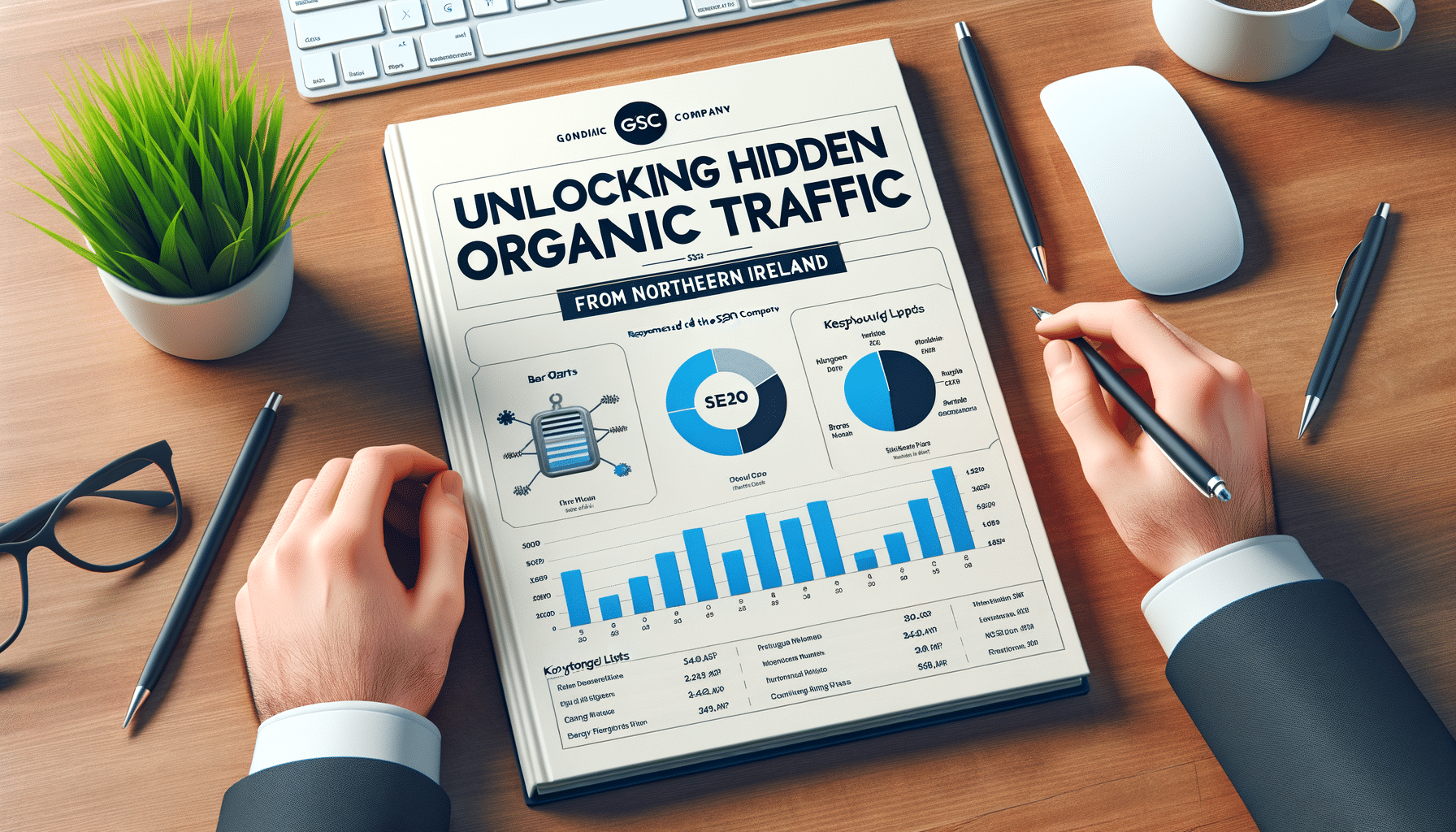Introduction
In the evolving landscape of digital marketing, harnessing local insights is crucial for optimizing search engine performance. For businesses operating in or targeting the Irish market, understanding the unique keywords that resonate with this audience can significantly enhance visibility and engagement. Google Search Console (GSC) serves as a vital tool for analyzing website performance, and when focusing specifically on Irish performance metrics, it can illuminate keywords that businesses might be overlooking. In this article, we will explore how to leverage GSC for uncovering Ireland-specific keywords, the potential impacts these keywords can have on your SEO strategy, and best practices for optimizing content relevant to the Irish market.
Understanding Google Search Console (GSC)
Google Search Console is a free service provided by Google that enables webmasters to monitor and maintain their site’s presence in Google Search results. With GSC, you can:
-
- Monitor website performance: GSC provides insights into how your site is performing in search results.
-
- Identify keyword performance: Analyze which keywords are driving traffic to your website.
-
- Diagnose issues: Identify problems such as crawl errors or security issues that might affect search visibility.
-
- Understand user behavior: Gain insights into how users are finding and interacting with your site.
By diving deep into GSC data specific to the Irish audience, businesses can optimize their content strategy to better align with local search trends and preferences.
GSC Performance Report: The Basics
The GSC Performance Report provides an overview of how your website performs in search results based on several metrics:
-
- Total clicks: How many times users clicked through to your site.
-
- Total impressions: The number of times your site appeared in search results.
-
- Average CTR (Click-Through Rate): The percentage of clicks divided by impressions.
-
- Average position: The average position of your specified URLs in Google search results.
These metrics can be filtered by country, allowing for an analysis of keyword performance within Ireland specifically.
Identifying Ireland-Specific Keywords
To find keywords that are particularly relevant to the Irish market, focus on several key areas:
1. Using Geographic Filters
Within GSC, navigate to the performance report and apply a filter for the geographic location. Set the country filter to Ireland. This narrows down the keyword list to only those that are resonating with Irish searchers.
2. Analyzing Search Queries
Once you’ve applied the geographic filter, examine the “Queries” tab within the performance report. Look for keywords that are showing:
-
- Low click-through rates (CTR) despite high impressions, indicating a potential opportunity for optimization.
-
- Millions of impressions but only a handful of clicks, which signifies that your content may need to better align with what users are thinking or searching for.
3. Identifying Long-Tail Keywords
Long-tail keywords often reflect more specific queries and can reveal niche areas that are relatively underserved. Look for phrases that have lower search volume but present an opportunity to capture a targeted audience. For example, rather than focusing on “cheap accommodation,” a long-tail alternative like “budget B&Bs in Dublin” might yield better results.
4. Localized Vocabulary
Assess the language and terms specific to the Irish dialect. Terms and phrases may vary significantly from standard English. For instance, in Ireland, the term “crisps” is commonly used instead of “chips.” Integrating these localized phrases and vocabulary into your keyword research will make your content resonate more clearly with your audience.
5. Examine Competitors
Analyzing the keywords that your competitors are ranking for can provide insights into gaps in your own keyword strategy. Use GSC alongside tools like SEMrush or Ahrefs to gain visibility into your competitor’s performance and identify keywords worth targeting in your own content.
The Role of Cultural Context
Understanding the cultural nuances of the Irish market is paramount when identifying keywords. The preferences and behaviors of users can directly influence the effectiveness of keywords. Consider the following:
1. Local Events and Holidays
Certain times of the year, such as St. Patrick’s Day or the Dublin Theatre Festival, may lead to spikes in relevant searches. Ensure that your keywords reflect the timing of local events. For example, “St. Patrick’s Day events in Dublin” during March could attract significant traffic.
2. Popular Attractions
If you’re in the tourism sector, incorporating keywords around popular attractions is crucial. Terms like “The Cliffs of Moher travel guide” or “best pubs in Galway” can attract a specific audience traveling to or within Ireland.
3. Regional Interests
Identify areas of interest that are unique to various regions within Ireland. For instance, keywords surrounding the Wild Atlantic Way might be relevant to travelers exploring the west coast, whereas “fun things to do in Belfast” would appeal to another demographic.
Optimizing Content for Ireland-Specific Keywords
Once you’ve identified relevant keywords, the next step is optimizing your content. Here are some strategies:
1. On-Page SEO
Utilize targeted keywords in:
-
- Title tags: Ensure Irish-specific keywords are included in the title to improve relevance.
-
- Meta descriptions: Craft descriptions that reflect localized search intent.
-
- Header tags (H1, H2, H3): Use keywords naturally within headings to enhance both readability and SEO.
2. Local SEO
Incorporate local listings by ensuring your business is listed on Google My Business and other local directory services. Encouraging reviews and displaying your business’s location can enhance visibility in local search queries.
3. Content Creation
Create blog posts, guides, and resources tailored to your audience’s interests. This could include articles about local events, interviews with Irish artists, or in-depth travel tips. Use rich, engaging media such as videos and images to appeal to users.
4. Schema Markup
Incorporate local schema markup to provide search engines with specific data about your business. This can help improve your web pages’ visibility in localized search results.
5. Mobile Optimization
With increasing mobile usage, ensure your website is mobile-friendly. A seamless mobile experience can drastically improve engagement and conversions.
Monitoring and Adjusting Your Strategy
Finally, optimization is an ongoing process. Regularly monitor your GSC performance report to identify trends in keyword performance. Adjust your strategy based on seasonal changes, user engagement metrics, and shifts in search behavior.
1. Track Rank Changes
Utilize GSC to track how your targeted keywords evolve over time. Adjust your content strategy based on which keywords are seeing growth and which are stagnating.
2. User Behavior Analytics
Analyze user behavior metrics through GSC and Google Analytics. Understanding how users navigate to your site can provide insights into what content resonates best.
3. A/B Testing
Experiment with different content formats—try different headlines, images, or calls-to-action to see which combinations yield the best results. A/B testing can refine your approach and yield better user engagement.
By focusing on an Ireland-specific keyword strategy and leveraging GSC effectively, businesses can enhance their visibility, drive more traffic, and engage more meaningfully with their audience. Taking advantage of local nuances and cultural context will not only optimize your SEO efforts but will also foster stronger connections with your target customers.









